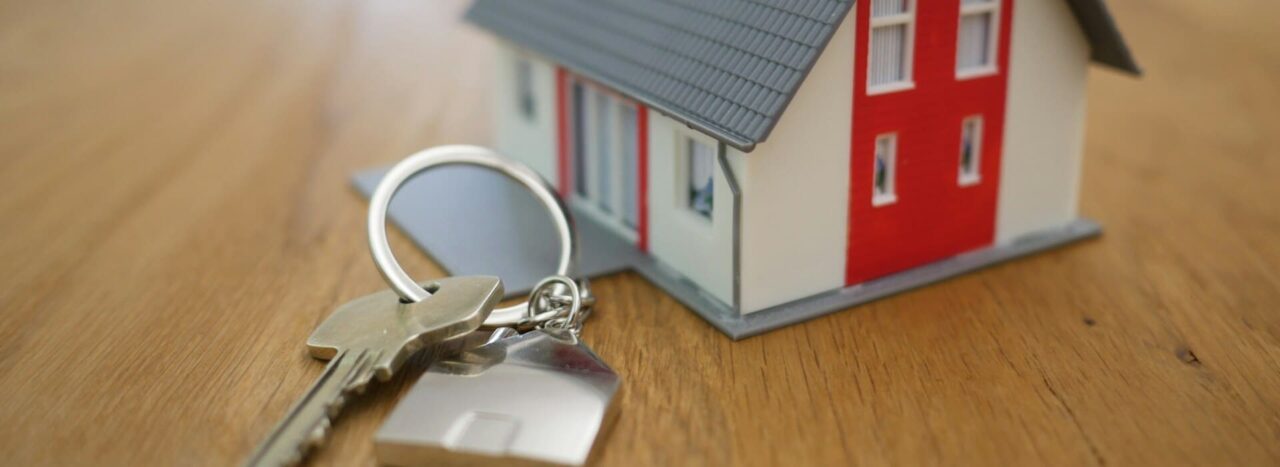Let’s be honest: Buying property abroad sounds like one of those things rich people do while sipping champagne on a yacht. But here’s the secret—you don’t need to be a millionaire to own a home in Portugal.
In fact, with its affordable property prices and foreigner-friendly mortgage options, Portugal is basically rolling out the red carpet for foreign buyers from all walks of life. Sure, the process might feel a bit like navigating a maze at first, but that’s where this guide comes in.
We’ll break it all down—how to get a mortgage in Portugal, taxes, paperwork, and even how much you can borrow—so you can focus on the fun part: imagining yourself living your best life in this sunny, Portuguese wonderland. No financial jargon, just straight-up advice to get you to your dream Portuguese home. Let’s get started!
Should you buy property in Portugal?

It starts the same way for so many of us: A spontaneous trip to Portugal, a lazy afternoon in a seaside café, a few too many glasses of vinho verde… and suddenly, you’re browsing Portugal real estate listings like it’s your new favorite hobby. Before you know it, you’re picturing yourself moving to Portugal and owning a little slice of Portuguese paradise. But is it a good idea? Is now a good time to buy property in Portugal?
You’ll be glad to know that Portugal is having a moment in the property game. From Lisbon’s cosmopolitan vibe to the Algarve’s laid-back coastal charm, it’s no wonder foreigners are snapping up properties.
In 2025, Portugal’s property market is expected to grow by 5.8 percent – leading the way in Europe. But before you start picturing yourself on your Portuguese balcony, ask yourself: is buying property in Portugal right for you?
If you’re looking for a sunny retirement spot, a holiday home, or even a buy-to-let investment, Portugal ticks all the boxes. Plus, with relatively affordable property prices (compared to other European hotspots) and a welcoming attitude toward foreigners, it’s a no-brainer for many. If life in Portugal calls to you like it does to so many others, making the big investment will only bring you years of happiness
Taking Out a Mortgage in Portugal: An Overview

For those of us who don’t have hundreds of thousands of euros stashed away in our bank accounts (or a treasure chest buried in the backyard), there’s still hope—borrowing the money.
Yes, a mortgage in Portugal might just be the savvy solution to turn your property dreams into reality. Let’s talk about how useful mortgages in Portugal can be for you.
Why should I take out a Portuguese loan?
If you don’t have the full purchase price for a home upfront, a mortgage is your best friend. Even if you do have the funds, financing can be a smart move, keeping your cash flow intact for other investments.
Portugal has created an attractive environment for property ownership, with over 76 percent of residents owning property in the country. Many of the leading banks in Portugal are also extremely foreigner friendly with their mortgage terms, allowing an easier path to home ownership.
Benefits of taking out mortgages in Portugal
Some of the benefits of taking out mortgages include:
- Lower interest rates: Portuguese mortgage rates can be quite attractive and are currently quite low.
- Property appreciation: Your home’s value may increase over time.
- Pathway to property ownership: You’ll own property in a favorable market.
- No restrictions: Banks in Portugal still offer mortgages even if you are a non-resident.
- Flexible terms: You can choose repayment periods that suit your budget.
Who can get a mortgage in Portugal?
Portugal is super foreigner-friendly when it comes to mortgages in Portugal for non-residents. Whether you’re an EU citizen or from further afield, you can apply. However, non-EU citizens might face stricter requirements, like higher down payments.
No matter where you’re from, as long as you have a good credit history and are in a good financial position to afford the payments, you should have no trouble getting your mortgage loan approved.
How much can you borrow in Portugal?
Typically, non-residents can borrow up to 60 to 80 percent of the property value (referred to as the loan-to-value ratio), while residents can stretch that to up to 80 or 90 percent. So, if you’re eyeing a €400,000 villa, you’ll need at least €120,000 as a minimum down payment on a 70 percent loan-to-value ratio.
Tips for comparing mortgages from different banks
Not all banks are created equal. Shop around to compare the Portugal mortgage rates and terms to see which bank’s offer suits you the best. Some popular banks in Portugal for foreigners include:
- BBVA
- Santander
- Bankinter
- Banco CTT
- Banco Best
Pro tip: Use a mortgage broker who speaks your language (literally and figuratively) to navigate the process.
Types of mortgages in Portugal

Portugal offers a variety of loan options to suit your needs, whether you’re after stability, flexibility, or a smart investment. Let’s break it down so you can find the perfect fit.
Fixed-rate mortgages
If you’re the type who likes to know exactly what you’re paying towards your mortgage each month, a fixed-rate mortgage might be a good choice. With a fixed-rate mortgage, your interest rate stays the same, making it easier to budget and plan for the future.
For a fixed-rate mortgage at some banks, the rate can stay fixed for the entire term of the mortgage loan, and for others, the rate will stay fixed for a certain portion of the term, before changing to a variable-rate mortgage (more on this below).
Variable-rate mortgages
For the more adventurous buyers, variable-rate mortgages offer loan terms where the interest rate fluctuates based on market conditions. This means your monthly payments can go up or down with your changing interest rate. While a variable-rate mortgage might sound a little scary, it can also work in your favor if interest rates drop (which is exactly what’s been happening in recent months).
Variable interest rates will fluctuate according to an index, which is used as a benchmark. For mortgages, the index typically used is the Euribor. How often your rate changes may depend on which Euribor your mortgage is tied to, but most update every six months. We’ll get into the finer details of the Portugal mortgage rates for foreigners a little later.
Buy-to-rent mortgages in Portugal
These loans are designed for investors looking to purchase property and rent it out. But here’s the catch: Lenders tend to play it safe with these mortgages. You’ll likely need a larger deposit, sometimes up to 40 percent of the property’s value. Plus, banks will want proof that you can cover the mortgage payments even if your rental income takes a knock.
Still, with Portugal’s booming rental market — and eased restrictions on short-term rentals in Portugal’s main tourist hotspots like Lisbon, Porto, and the Algarve — it could be a smart move for your property portfolio.
Commercial mortgages in Portugal
Got your eye on a charming café in Lisbon, a bed and breakfast in the Algarve, or even a vineyard in Porto? Commercial mortgages are designed for business-minded expats looking to invest in Portugal’s growing economy.
To get a mortgage on a business property in Portugal, you’ll usually need a deposit of at least 50 percent of the sale price. The mortgage lender will require information on your intended business, including a business plan if you’re setting up a new company.
Mortgage rates in Portugal

Portugal offers some of the most competitive mortgage rates in Europe. Mortgage rates in Portugal can range from as low as two percent to as high as seven percent, depending on factors like the current market, the property value, your deposit size, your financial history, and the type of mortgage you choose.
For the most up-to-date rates, it’s worth checking individual bank websites or chatting with a mortgage broker who can help you navigate the numbers.
As mentioned earlier, mortgage rates in Portugal are heavily influenced by the Euribor (Euro Interbank Offered Rate). If you’re taking out a variable-rate mortgage, your interest rate will typically be the Euribor rate plus a fixed percentage set by the bank. For example, if the Euribor is two percent and your bank adds two percent, you’ll pay an interest rate of four percent.
Over the past year, banks, on average, have been offering lending rates of between 4.5 and 6 percent, but rates have been steadily decreasing over the past few months. To stay in the loop, you can keep an eye on the bank lending rates (the average rate banks charge individuals) on the Trading Economics website, which updates monthly.
Using a Portugal Mortgage Calculator Online

An online mortgage calculator is a useful tool for instantly receiving an estimated monthly mortgage repayment amount on your mortgage. You can use it to play around with different property values, mortgage terms, and deposit amounts to see what you can comfortably afford at the current interest rates before approaching a bank.
Goldcrest has a great Portugal mortgage calculator you could use to get accurate estimates on your monthly payments for your mortgage.
How to apply for a mortgage in Portugal

You have two options for how to go about applying for a mortgage loan: Approaching the bank directly or working through an independent mortgage broker. Personally, we’d recommend the mortgage broker.
Not only can an English-speaking broker help with the language barrier, but they’ll be able to help you compare and find a good mortgage across the different options. Usually, you won’t need to pay a separate fee for their services; instead, the bank you take out the mortgage with will pay them a commission.
At what stage should I apply for a mortgage in Portugal?
Timing is everything! Start your mortgage application before you fall head over heels for a property. Portuguese banks can take a few weeks to process applications, and you don’t want to lose your dream home because you’re stuck in paperwork purgatory.
Making mortgage inquiries before your property searching and knowing your budget in advance can also save you from falling in love with a property that’s way out of your price range. Better yet, it could also reveal that you can afford more than you initially thought!
How to apply for a Portuguese mortgage: A step-by-step guide
Here’s the step-by-step process for getting a mortgage in Portugal:
- Gather no obligation quotes from lenders to get an idea of what you can afford.
- Get your documents ready: Passport, proof of income, tax returns, and more will be requested (more details below)
- Choose your preferred bank or mortgage broker.
- Submit your application.
- Get a formal mortgage offer once the bank has processed your application.
- Pay your deposit and send proof of payment to your lender.
- Sign the property and mortgage deeds (or mortgage agreement) in front of a notary to complete the transactions. Then pop the champagne because you’ll officially be a homeowner!
Documents needed to apply for a Portuguese mortgage
As we mentioned earlier, the bank will require certain documentation when applying for mortgages in Portugal. These are:
- Copy of a passport or ID card
- Portuguese NIF number
- Proof of address, like a utility bill
- Proof of income
- Bank statements showing the last 60 days’ cash flows
- Recent mortgage statements
- Proof of any savings or investments
- A reference letter from your bank
- Details of the property purchase you wish to make
If you are employed, you’ll also need:
- The previous year’s tax returns
- The last three month’s pay slips
- A reference letter from your employer stating how long you have been working for the company and what your earnings are
If you are self-employed (hold at least 20 percent share in a limited company) you’ll also need:
- The previous year’s tax returns
- Business bank statements for the last three months
- Company profit and loss and balance sheet statements for the last three years
If you earn any other income, you’ll also need (if applicable):
- Proof of pension income for the previous three months
- Copy of tenancy agreement for rental properties
- Statements showing any rental income received for the last three months
- Copy of investment certificates
The bank may also request additional documents at their discretion.
Additional costs of mortgages in Portugal

Buying property isn’t just about the mortgage repayments. You’ll also need to budget for the following extra property tax and costs of applying for a mortgage:
- Stamp Duty Tax (IMI): 0.6 percent of the mortgage value
- Notary and registration fees: €500-1000
- €290 fixed applicated fee and €280 bank valuation fee, although these costs are likely included in your mortgage agreement
Other costs associated with purchasing your house:
- Legal fees: Around €2,000-€5,000
- Property purchase tax (IMT): 0 – 8 percent depending on the property type and price, and 10 percent if the property is in a blacklisted jurisdiction.
- Stamp Duty Tax (IMI): 0.3 – 0.5 percent for urban properties and 0.8 percent for rustic/rural properties
Is property insurance required in Portugal?

At the very least, you will need to take out life insurance to get your mortgage approved, some banks and other financial institutions will require home insurance too. Think of it as a safety net for your new real estate investments.
When are mortgage repayments in Portugal?

Mortgage payments are typically due at the end of each month. Portuguese mortgages typically have repayment terms of 25 to 30 years. Most banks allow early repayments but check for small penalties.
Refinancing a mortgage in Portugal

Whether you’re looking to borrow extra cash for that dream kitchen renovation or extend your repayment term to ease the monthly squeeze, refinancing is an option in Portugal worth exploring. But there are a few things to bear in mind.
For starters, you might face early repayment charges on your current mortgage loan, which can range from two to five percent of the outstanding balance. Portuguese lenders can also be risk averse. While they might let you borrow extra money for home improvements, they’re less keen on extending your repayment term. Most banks won’t stretch the remaining years by more than 25 percent.
If you’re hoping to refinance, you’ll also need to meet their financial criteria—think stable income and good credit.
Final Thoughts
While getting a mortgage in Portugal might seem like a bit of a puzzle at first, with the right preparation and guidance, it’s totally doable. Whether you’re planning a permanent move, an investment, or just a dreamy holiday home, Portugal’s real estate market remains one of Europe’s star attractions.
The key? Do your research, compare mortgage options, and work with trusted professionals like mortgage brokers or real estate experts to smooth out the process. With the right financing in place, you’ll be one step closer to calling Portugal home.
What is the maximum loan-to-value for Portuguese mortgages?
Non-residents can typically borrow up to 60 to 80 percent of the property value, while residents may get up to 90 percent. The actual percentage you can borrow will depend on the bank’s risk assessment of your financial situation.
How much can I borrow for a mortgage in Portugal?
When taking out mortgages in Portugal for non-residents, you can usually borrow up to 60-80 percent of the property’s purchase price. This could vary between different banks.
What are the lending criteria for a mortgage in Portugal?
Banks evaluate your income, credit history, employment status, and debt-to-income ratio. They will also consider your residency status and whether you are buying for personal use or investment.
Should I buy property in Portugal?
If you love sunshine, a relaxed lifestyle, and a stable real estate market, then yes! Portugal remains one of Europe’s most attractive destinations for property investment and the property market is still set to grow over the years to come.
What are the benefits of taking out a Portuguese mortgage for foreigners?
Foreign buyers benefit from competitive interest rates in Portugal, and foreigner friendly mortgage terms. Because Portugal mortgages are so attractive, investors are also able to leverage their investment while keeping liquidity for other real estate investments.
Taking out a mortgage in Portugal means you also benefit from bank checks and property valuation before you buy.
Can I add the IMT tax due to the total mortgage sum?
No, the IMT tax (property transfer tax) must be paid separately and cannot be included in the mortgage loan.
Can you get a mortgage in Portugal as a foreigner?
Yes, foreigners can get mortgages in Portugal. However, they may be subject to different loan-to-value ratios and different terms and requirements compared to residents.
What is the age limit to take out a mortgage?
Most Portuguese banks set the maximum age for mortgage repayment at 65-70 years old or may extend it to 80 years old in certain circumstances. This usually means your mortgage term must end before you reach that age, however, banks have been known to allow mortgages to continue into retirement, provided you have a comfortable pension income.
Can retirees take out a mortgage in Portugal?
Yes, retirees can get a mortgage in Portugal, but they may face stricter conditions. Lenders will assess pension income and financial stability to ensure monthly payments can be met. However, it will be difficult to find a bank that will offer a mortgage if you’re older than 70 years old, although some banks may allow repayment until 80 years old in certain circumstances. So if you’re thinking of retiring in Portugal, remember to keep these conditions in mind.
How long does it take to buy a house in Portugal?
The entire process, from mortgage approval to signing the property and mortgage deeds, usually takes between three to six months, depending on paperwork, property valuation, and bank approvals.
Is it difficult to get a mortgage in Portugal?
It depends on your financial situation. If you have your paperwork in order, along with a stable income, good credit history, and a sufficient deposit, the process is straightforward.
What are the mortgages available in Portugal for non-residents?
Non-residents can apply for standard residential mortgages (a fixed-rate mortgage or a variable rate mortgage), buy-to-let mortgages, and even commercial mortgages. The terms and conditions may vary depending on the bank.
What are the mortgages available in Portugal for residents?
Residents have access to the same types of mortgages as non-residents but with more favorable terms, including loan-to-value ratios of up to 90 percent.
Can I get a mortgage in Portugal as a UK resident?
Yes, UK residents can apply for a mortgage in Portugal. Portugal offers mortgages to Portuguese residents and non-residents, although at slightly different terms. Moving to Portugal from the UK is also a straightforward process.
What do you need to get a mortgage in Portugal?
You’ll need the following documents to apply for a mortgage:
- Copy of a passport or ID card
- Portuguese NIF number
- Proof of address, like a utility bill
- Proof of income
- Bank statements showing the last 60 days’ cash flows
- Recent mortgage statements
- Proof of any savings or investments
- A reference letter from your bank
- Details of the property you wish to purchase
Based on your employment status and other income you may be receiving, you might also need to provide reference letters, previous years’ pay slips, business statements, property tax returns, proof of pension income, proof of rental income and rental agreements, and/or proof of investments.
How much deposit do you need for a mortgage in Portugal?
Non-residents typically need at least 20-40 percent of the property price as a deposit, while residents may need as little as 10-20 percent. So investing a Portugal Golden Visa or another residency pathway could pay off in the long run.
How much are mortgage rates in Portugal?
The average lending rate in Portugal as of November 2024 was 4.62 percent. However, this average rate will fluctuate based on the Euribor movements, and each bank’s lending criteria will also differ, so this is not necessarily the exact rate you will be offered.
What are the mortgage conditions in Portugal?
Mortgage conditions vary by bank but generally include a maximum loan-to-value ratios of 60-80 percent for non-residents, repayment terms of up to 25-30 years, and mandatory property insurance. There is also generally an age limit of 65-70 years old, although some banks may extend this limit to 80 years.
What are the interest rates for mortgages in Portugal?
The average lending rate in Portugal as of November 2024 was 4.62 percent. This rate will vary depending on when you apply for a mortgage and what the bank offers you based on your financial position. Interest rates could range from three to six percent.
What is the housing market in Portugal like in 2025?
The market remains strong in 2025 while still offering some of the most affordable property prices in Western Europe. Demand for property remains high among expats and foreign investors, particularly property in Lisbon, Porto, and the Algarve. The Portuguese property market is expected to grow by 5.8 percent in 2025, with these key regions driving the most growth. This makes now a great time to invest in your Portuguese dream home.






